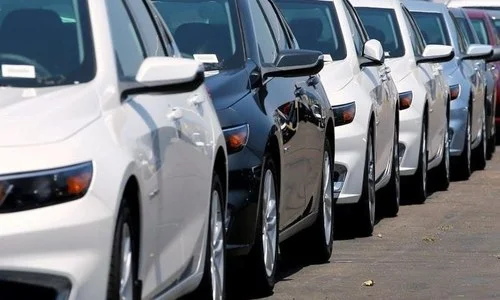Islamabad, 26 May , 2025: Lucky Motors has voiced strong opposition to the government’s proposed tariff reforms, warning that reduced duties on imported vehicles could destabilize Pakistan’s automotive sector.
The concerns were raised by Muhammad Ali Tabba, Chairman of Lucky Motor Corporation, who criticized the move as a threat to local manufacturing and job creation.
Tariff Proposal Sparks Industry Concerns
Lucky Motors expressed reservations over the government’s Tariff Rationalisation Plan, which suggests a phased 15% reduction in customs duty on the import of completely built units (CBUs) over the next five years.
READ MORE: Kia Hikes Picanto Price, Cuts Sportage L Rates
According to Tabba, implementing such changes without a well-defined strategy would severely affect the progress made by domestic automakers.
He argued that the policy, as currently designed, undermines the local industry’s ability to compete with foreign imports and could reverse the gains achieved through recent industrial policies.
Previous Policy Attracted Investment and Jobs
Lucky Motors emphasized that the Auto Development Policy 2016–2021 had encouraged international carmakers from South Korea, Europe, and China to invest around $1.2 billion in Pakistan.
These investments led to the establishment of new assembly lines and parts manufacturing units, significantly expanding the country’s industrial base.
Tabba noted that this earlier policy gave consumers greater choice in vehicles and contributed to employment generation in both vehicle production and related industries. He stressed the importance of maintaining policy consistency to safeguard these advancements.
Need for Balanced and Strategic Reforms
While acknowledging the need for long-term reforms, the Lucky Motors Chairman insisted that tariff adjustments must be balanced and aligned with the overall economic development goals. Sudden changes, he cautioned, could disrupt the local market and discourage further investment.
READ MORE: Senators Warn Car Export Target at Risk if Standards Are Not Adhered
Tabba reiterated that without thoughtful implementation, tariff reductions could shift the focus back to imports, weakening local production and impacting job security.
As the debate around the proposed tariff changes continues, Lucky Motors has urged policymakers to prioritize sustainable growth and ensure that any reforms support, rather than undermine, Pakistan’s auto sector.









